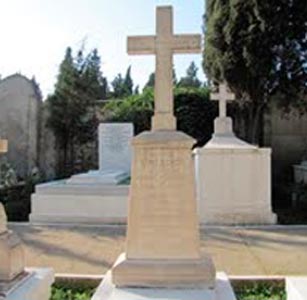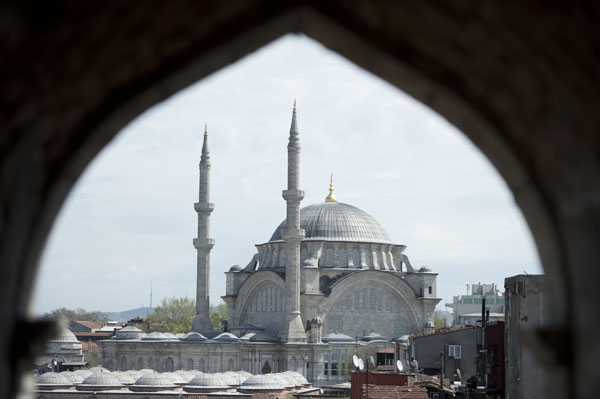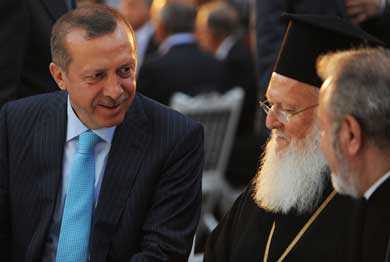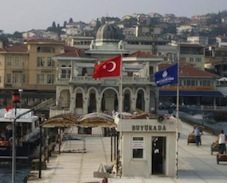By: Raffi Bedrosyan
(Armenian Weekly)–The Turkish government recently announced that real estate assets confiscated by the State, which once belonged to Armenian, Greek, and Jewish charitable foundations, would be returned to the rightful owners, and that the government would pay compensation for any confiscated property that has since been sold to third parties. This is definitely a long overdue positive step in the right direction by the Turkish government, when compared with decades long injustice and discrimination of the past Turkish governments against its non-Muslim citizens. While this decree was hailed by the EU, Turkish media as well as the minority charitable foundations in Turkey, it was met by the Armenian Diaspora as an insufficient gesture at best, a cynical political trick at worst. Perhaps the following facts can help put the issue in context.
Selamet Han
In 1936, the Turkish government required the non-Muslim minority charitable foundations to submit a list of all their real estate assets to the state, which they did. In 1974, during the height of the Cyprus crisis and with inflamed hatred toward the Greeks, the Turkish government installed by the 1971 coup d’etat decreed that any assets not shown on the 1936 lists, that is, properties deeded to the charitable foundations after 1936, are illegally obtained and therefore, must be seized by the Turkish state. Some 1,410 properties willed or gifted to the non-Muslim charitable organizations from 1936 to 1974, were confiscated by the State, thus suddenly depriving the foundations from their beneficial uses and revenues. These assets included apartment, school and office buildings, houses, shops and vacant land, mostly in or near Istanbul, where most of the remaining non-Muslim minority citizens in Turkey lived. The present government decree pledges to return 162 of the 1,410 assets confiscated in 1974. Over the past several years, the charitable foundations had tried through Turkish legal channels to get back these assets but to no avail. They had recently applied to the European Court of Human Rights, which had already ruled against the Turkish state on a number of cases.
Below is a partial list of the Armenian charitable foundation assets to be returned by the government:
1. Gedikpasha Armenian Protestant primary school – the building is already demolished, at present used as a park
2. Gedikpasha Armenian Protestant Church – one apartment building in Kumkapi, a restaurant, a playground
3. Surp Harutyun Armenian Church – several flats in Beyoglu
4. Ferikoy Surp Vartanants Church – an apartment building and a vacant lot in Sisli
5. Kurucheshme Surp Khatch Yerevman Church – one building in Arnavutkoy
6. Kumkapi Surp Harutyun School – a store in Kumkapi and a store in Kadikoy
7. Kumkapi Mayr Asdvadzadzin Church – a flat in Eminonu
8. Yenikoy Surp Asdvadzadzin Church – a vacant lot in Istinye
9. Bomonti Mkhitaryan Armenian Catholic School – school buildings, two shops and a flat in Sisli
10. Yedikule Surp Prgitch (Holy Saviour) Armenian Hospital – a total of 19 properties, including one building lot, a house and four shared lots in Sariyer, a residential building in Moda, 2 residential buildings in Sisli, one flat in Beyoglu, one store in Kapalicarsi Covered Bazaar, a house in Uskudar, one apartment building, one flat and a warehouse in Kurtulus, a four storey hotel in Taksim, a retail and office commercial building in Beyoglu, a flat in Chamlica, a 47,500 sq. m. vacant lot in Beykoz, and a 44,000 sq. m. land adjacent to the Hospital, formerly the gardens of the Hospital, presently used as Zeytinburnu Soccer Stadium, a sports building, a parking lot and a tea garden, and last but not least, the valuable office building called Selamet Han in Eminonu, Istanbul.
It is noteworthy to emphasize the significance of the Selamet Han office building, which was donated in 1953 by well known businessman and oil magnate Caloust Gulbenkian. The impressive six storey art nouveau style building was built in early 20. century by Armenian architect Hovsep Aznavour, builder of many of the Istanbul landmarks in the Pera/Beyoglu district. The Selamet Han building, confiscated by the state in 1974, fell into disrepair and is now in a dilapidated condition. The Surp Prgitch Foundation has announced that as soon as the building is given back, it intends to restore it and put into use as a boutique hotel, to generate much needed revenues for the hospital operations.
The recent government decree at last and at least partially addresses the injustices of the 1974 confiscations, by pledging to return about ten percent of the 1,410 properties, mostly in Istanbul. However, there is a massive list of properties and assets belonging to the thousands of Armenian churches, monasteries and schools in Anatolia, lost after 1915. One example to illustrate the enormity of this issue is the case of the Surp Giragos Armenian Church in Diyarbakir, which by itself had owned more than 200 properties in central Diyarbakir prior to 1915. Another interesting example is the Sanasaryan High School in Erzurum. This school, which provided education of such high caliber that it even surpassed the Istanbul Armenian schools in the late 19. century, was closed down in 1915. It is still a little known fact in Turkey that Mustafa Kemal Ataturk, when drumming up support and organizing the resistance to the Allied occupation of Anatolia, convened the famous Erzurum Congress in this Armenian school in July-August 1919. The Sanasaryan School Foundation, had built and owned one of the largest office buildings in Istanbul in the late 19th Century, in order to support the Sanasaryan School in Erzurum. It is also a little known fact that the famous Sanasaryan Han Office Building in Istanbul was seized first by the Ottoman and then the Turkish Republic governments and converted into the General Security and Police Headquarters of Istanbul. This building became notorious for the imprisonment, torture and murder of hundreds of intelligentsia during the military government regimes in the 1970’s and 1980’s.
One last glaring example involves the lands belonging to the Surp Agop Armenian Cemetery, which were confiscated in the 1930s by the Istanbul municipal government. These lands were deeded in the 16. Century by the Ottoman Emperor Sultan Suleiman the Magnificent to the Armenian people for cemetery uses, as a reward to his personal cook Manuk Karaseferyan of Van, who saved the Sultan from a poisoning plot against him by the Germans and Hungarians after the campaign to take Budapest. The Armenian cemetery was in use for nearly four centuries from 1560s to 1930s. As these vast lands lie adjacent to the most popular road in the centre of the city, they were deemed most valuable by the Istanbul government and expropriated from the Armenian Surp Agop Foundation without any compensation, despite years of legal struggles. At present, these lands are occupied by the State Radio and Television Headquarters, The Turkish Armed Forces Istanbul Headquarters, the Military Museum, many fashionable hotels such as Hilton, Regency Hyatt, Divan, several apartment and office buildings, as well as the expansive Taksim Park, which has walkways made from marble of the Armenian tombstones.
The decree by the present government may seem insufficient or insignificant, but everything is relative, and this is an enormous first step of a long journey in the right direction when compared with past Turkish government policies. This journey requires mutual empathy, cooperation, encouragement and, above all, the uncovering of all hidden historic facts on the path to the creation of a common body of knowledge.
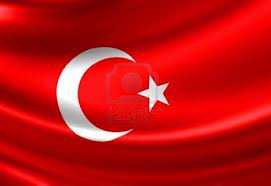 Held in Galata Greek School in Istanbul on Dec. 13, the seminar titled “The Legal Condition of the Minority Foundations” was the first of its kind in the Republican period.
Held in Galata Greek School in Istanbul on Dec. 13, the seminar titled “The Legal Condition of the Minority Foundations” was the first of its kind in the Republican period.
